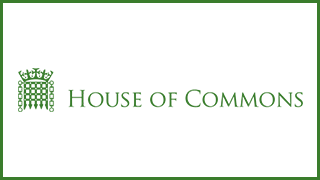Home Affairs Committee reviews pro-life activity outside abortion clinics

Investigating claims of harassment and intimidation
The House of Commons Home Affairs Committee has met to investigate claims of harassment and intimidation of women outside abortion clinics. Chaired by Yvette Cooper (Labour), the Committee received oral evidence from representatives of Ealing Council, BPAS, and Marie Stopes who have all called for the establishment of buffer zones. Representing the pro-life side of the argument were Clare McCullough of Good Counsel Network (GCN) and Antonia Tully of Society for the Protection of Unborn Children (SPUC).
Committee meeting a ‘kangaroo court’
Yvette Cooper is not new to the buffer zone debate, nor is she impartial. Indeed, Ms. Cooper has established herself as a primary enemy of the unborn child’s right to life. While serving as the Shadow Home Secretary, Ms. Cooper called for buffer zones to ban pro-life groups from outside abortion clinics in 2014.
In 2015 Cooper encouraged other members of the Labour Party to vote against an amendment presented by Fiona Bruce (Conservative) that would clearly ban sex-selective abortions. Ms. Bruce’s amendment was defeated, meaning that there is no clear British law against aborting a child because it is the undesired sex.
Earlier in 2017, Yvette Cooper backed Diana Johnson’s Reproductive Health (Access to Terminations) Bill that called for abortion decriminalisation. While Johnson’s bill had to be discarded due to this year’s surprise general election, it is very likely that it will be reintroduced in the near future and will once more be backed by Ms. Cooper.
With the re-emergence of the buffer zone debate in early Autumn this year, Ms. Cooper expressed her support for fellow Labour MP Rupa Huq’s campaign to establish buffer zones against pro-life groups around abortion clinics, including those engaged in ‘silent prayer.’
The partial and biased way the committee meeting was chaired on Tuesday was deeply concerning. Allowing pro-abortion representatives to speak without interruption, Cooper presumed Good Counsel Network and others guilty of harassment and intimidation from the very first question she asked of GCN’s Clare McCullough. Cooper repeatedly interrupted and drew on vague, alleged accounts (no substantive evidence was presented) of some women feeling intimidated by pro-life pavement counsellors to make her point that pro-life groups are engaged in harassment. Ms. Cooper contemptuously rejected McCullough and Antonia Tully’s claims that many women have been helped by the presence of pro-life counsellors outside abortion clinics. On Facebook, the pro-life charity, ‘Life’, spoke of the proceeding as ‘a kangaroo court.’
No ability to prosecute because there is no harassment
Despite the bias exhibited by Cooper throughout proceedings, crucial points were made by others on the committee, and acknowledged in evidence, that expose holes in the arguments of Ealing Council, BPAS, and Marie Stopes. Douglas Ross, Will Quince, and Tim Laughton - all of the Conservative Party - each raising similar points. Laws already exist to protect people from harassment and intimidating behaviour. Why have these not been implemented against Good Counsel Network and other pro-life groups in 20 years outside Mattock Lane’s abortion clinic? The answer is simple. They have not engaged in harassment or threatening behaviour.
During the committee’s meeting, many took to Twitter to express support for pro-life group’s right to freedom of speech and expression with the hashtag #NoBufferZones rising to number 2 in UK twitter trends. Among the supportive tweets were those of women who had been at Mattock Lane’s abortion clinic who indicated the only harassment they saw was from the pro-abortion group Sister Supporter.
The Future
It is unclear as of yet whether official legislation will be implemented to install buffer zones outside abortion clinics. The Home Affairs Committee will report its findings and the Home Secretary, Amber Rudd, will consider its findings as part of her Home Office review into whether buffer-zones should be applied. What was crystal clear from Antonia Tully and Clare McCullough in their testimony before the committee is that pro-life counsellors will continue to stand outside abortion clinics, offering prayerful, peaceful, and compassionate counsel. Antonia Tully of SPUC challenged the committee:
"Let's think of the hundreds of women who took up help outside of a clinic: many women arrive at the clinic and are not decided...there are huge pressures on these women, and a peaceful, prayerful woman offers them a lifeline outside the clinic."
Please join us in praying that no legislation will be enacted to take that lifeline away.
